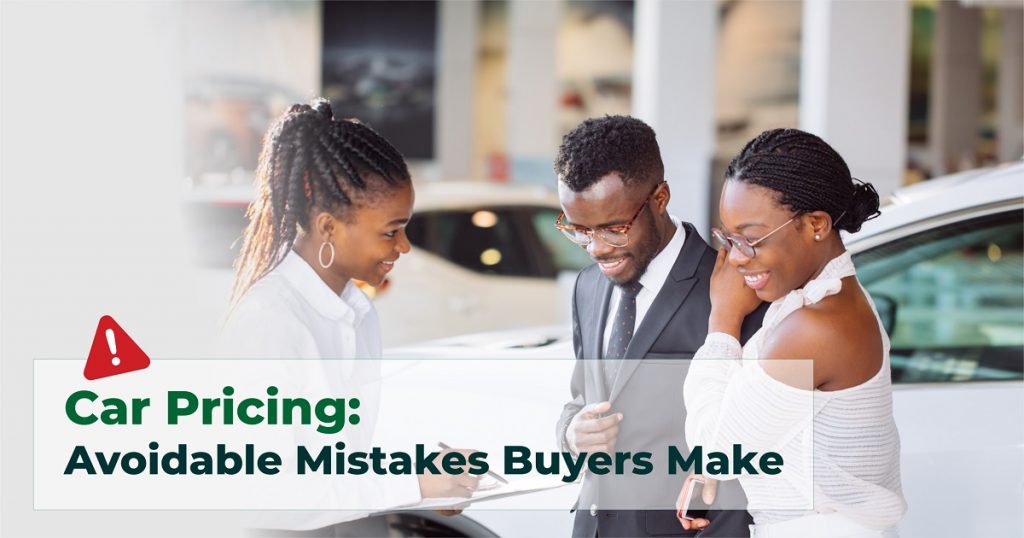Pricing a car at the dealership is one of the hardest things you may find yourself doing in your quest to join the league of car owners in Nigeria. This is because buying a car is a large financial commitment and you do not want to fail in it. The slightest mistake on your part at this point could see the dealer making an amazing bonus for himself.
It is, therefore, important to approach the car dealership with all the necessary information that will advance your interest. Here are some pricing mistakes you should avoid at the car dealership.
1. Failing to Research Cars
To enjoy a successful negotiation at the car dealership, you need to arm yourself with a wealth of information about the range of options available to you. Do not go to a dealership without knowing what you want to get. if you make this mistake, you will get what the dealer feels like selling to you. Therefore, it is important you arm yourself the current pricing trends. One easy way to get the price of cars listed for sale in Nigeria is to use the Cheki True Price tool, which gives you the current price of Tokunbo and used cars.
2. Not Knowing the Invoice Price
A good bargain at the dealership also depends on intense preparations for the negotiation process. This involves finding out the manufacturer’s suggested retail price, also known as the sticker price as well as the invoice price. Cars are rarely sold at the sticker price, but it gives you an idea of where to begin your bargain from. Usually, you can purchase a car closer to the invoice price than the manufacturer’s suggested retail price. The more knowledge you have of the invoice price, the better your bargaining position during pricing at the dealership.
3. Ignoring Your Budget or Not Having One
It is easy to ignore your budget for a car at the car dealership. With those flashy cars before you, a car dealer could persuade you to climb one ladder above what you can afford. If you can afford only a car for N2 million, you don’t want to go hungry by making a move for one that is worth N4 million because the car dealer convinced you that it is a more recent model.
Having a budget gives you an idea of what you can afford. Therefore, a good rule for excelling at the car dealership is having a budget and sticking to it all through the pricing stage.
4. Not Calculating the Value of Trade-in
The convenience of driving an old car to a dealership and returning in a new one is a tempting prospect for many car buyers. But if you wish to do a trade-in, it is best to research the value of your car first before going to the dealership with it. This is to prevent under-pricing by the dealer. Likewise, trade-in should be brought on the table after exhausting discussions on the price of the new car.
5. Not Walking Away
No car is too good to walk away from when the price is not in agreement with your budget. When negotiating with the dealer, remember that turning your back to walk away is your strongest weapon in the arsenal. Don’t be afraid to use it.
Dealers have a lot of phrases to trick customers into accepting offers that do not meet their expectations or budget. ‘This deal is only good today’ or the next 24 hours is a popular trick by dealers to force you into making up your mind and bending to their wishes. Don’t hesitate to walk away when the negotiation isn’t going in your favour or you feel suspicious. Once you are emotionally invested in the car and you have promised your wife and kids at home that a new ride is coming home, this can be difficult to pull. But it could save you some money in the long run. Most dealers will call you in a day or two, flashing a new and better deal in your face.
Final Thoughts on Car Pricing Mistakes
Car pricing at the dealership could become so stressful that you want to get it over with quickly. However, this doesn’t have to be the case if you want to spend your hard-earned money prudently. Apart from the above-listed mistakes to avoid at the dealership, it is also best to think deeply about the payment options if you are shopping for the car with a car loan. This is to prevent unnecessary financial complications in the future.
